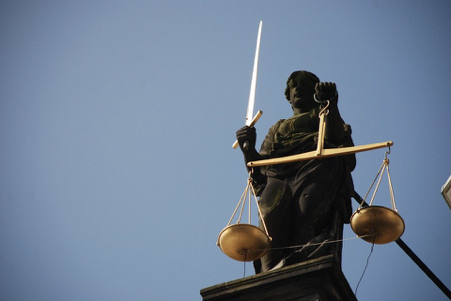2 The importance of justice
Rather than just considering fairness, we should also consider notions of justice. Yet while we might agree that justice is important, defining exactly what justice is can sometimes be much harder.
Activity 1 The meaning of justice
Consider what you think justice means. Type your ideas in the box below.
Comment
If you looked up the word ‘just’ in a dictionary you would find it defined along the lines of fairness or impartiality in action or judgement, conforming to high moral standards, namely honest, legally valid, unbiased, reasonable and rightful.
This is not an exhaustive list and your definitions will vary.
At its most basic level, justice refers to a situation where there is fairness in the way the situation is handled and in the result. In everyday life we expect parents, teachers, employers and referees of sporting activities to be fair in their handling of their children, students, employees and players. In the same way, we expect law to be fair and just in its principles and in the way that they are applied.
Justice is often represented by the equally balanced scales of justice. The Greek goddess of justice, Themis, was traditionally represented carrying scales in which she measured the different aspects of the argument.
The meaning of justice has been considered over the centuries by successive philosophers, academics and lawyers, and there are many different theories. They can be quite complex and could justify a course in their own right! In light of that, what follows is a brief examination of some of the most relevant forms today.
Contested ideas of justice
The term ‘justice’ is a ‘contested concept’, one whose meaning is never completely fixed or finally closed and agreed upon. From this perspective we might recognise that each society (or group within it) will have its own definition of justice, and those definitions cannot (and perhaps should not) be reconciled. Equally, each of those same groups will have their own ideas about justice and practices for implementing them.
This has significant implications for how justice – and most particularly those ‘representing’ justice such as the legal professions, the courts and, of course, policing bodies – are perceived, accepted and regarded.

